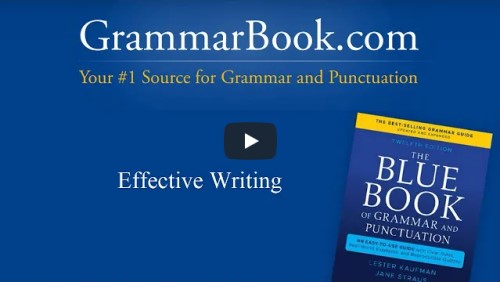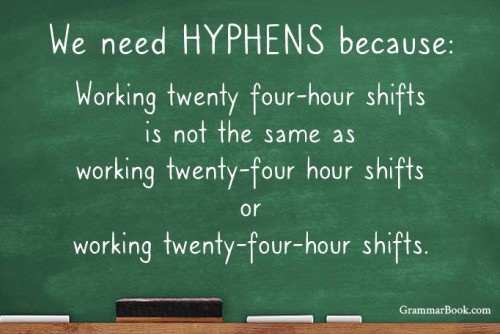|
English includes different kinds of pronouns, such as personal, demonstrative, reflexive, possessive, indefinite, and interrogative pronouns. In this review, we’ll take a closer look at relative pronouns.
A relative pronoun substitutes for a noun to introduce a subordinate (dependent) clause, which is one that must be joined with an independent (main) clause to complete the sentence in which it appears.
A dependent clause led by a relative pronoun is also referred to as a relative clause. You might hear it called an adjective clause as well because it tells us more about a noun— the pronoun’s antecedent—in the main clause.
The relative pronouns are that, which, who, whom, and whose. They typically refer to people, places, animals, things, or ideas.
Examples
He has a daughter who is a talented ice skater.
I want the car that gets the best mileage per gallon.
Sheila held tightly to the dog whose companionship had never waned. |
Each sentence has a subordinate clause marked by a relative pronoun that further describes a noun (daughter > who, car > that, dog > whose).
Indefinite Relative Pronouns
Some relative pronouns do not modify a noun antecedent; rather, they operate as indefinite relative pronouns that introduce a clause functioning as a subject or object noun. Indefinite relative pronouns include words such as what, where, whoever, whomever, whichever, and whatever.
Examples
What she wants is fine with me.
Carla asked Tanille where she went for dinner.
Aaron wants the boat so much he said he’s willing to pay whatever they ask for it. |
In the first sentence, what subordinates the clause what she wants. The entire relative clause what she wants is the subject of the sentence.
In the second sentence, where subordinates the clause where she went for dinner. The entire relative clause where she went for dinner is the direct object of the sentence.
In the third sentence, whatever subordinates the clause whatever they ask for it. The entire relative clause whatever they ask for it is the object of the infinitive to pay.
Relative Pronouns: Tighter, Smoother Writing
Relative pronouns help us write content that is less choppy and more smooth and united.
Choppy: Wanda has a son. Her son is a superior athlete.
Revised: Wanda has a son who is a superior athlete.
Choppy: I'm looking for a baseball bat. The bat can't have pine tar on it.
Revised: I'm looking for a baseball bat that doesn't have pine tar on it.
Choppy: You'll find my sweaters in the closet. All of my sweaters are green.
Revised: You'll find my sweaters, which are green, in the closet. |
We see in each example that including a subordinate clause with a relative pronoun modifying an antecedent results in shorter sentences and often greater movement.
Relative Pronouns: Essential vs. Nonessential Clauses
When writing with relative pronouns, keep in mind the difference between essential and nonessential clauses.
An essential (restrictive) clause is one that includes information that is important to clarity and understanding. A nonessential (nonrestrictive) clause is one that adds information that is descriptive but not necessary.
Compare the following sentences.
The box that Priscilla gave me contained the classified bank codes.
The box, which Priscilla gave me, contained the classified bank codes. |
In the first sentence, we refer to a specific box; there could be others, but this is the one containing the bank codes. We establish this essential information by using the relative pronoun that without surrounding punctuation (commas).
In the second example, the relative clause is set apart from the rest of the sentence in a parenthetical way. The relative pronoun which surrounded by punctuating commas tells us this is extra information about only one box being referred to; there are no others. Removing the relative clause would not alter the core information we need to clearly convey.
Relative Pronouns: Keep Them Close
When we’re using relative pronouns in subordinate clauses, it’s important that we keep the relative pronoun as close to its antecedent as possible. In many cases, this means using the relative pronoun right after the noun it is describing.
Example
I handed the book to the policeman that Janelle gave me. |
Could Janelle have given away a policeman? Maybe. The likelier scenario involved the giving of the book. Keeping the relative pronoun, that, close to its antecedent, book, results in a clearer sentence: I handed the book that Janelle gave me to the policeman.
In other instances, simply rewriting the sentence will ensure proper clarity.
Example
The vanity mirror in the bathroom, which is an antique, has been with my family for generations. |
In this sentence, the relative pronoun which appears to modify the word bathroom. Was the bathroom an antique? We probably meant that the vanity mirror was an heirloom. We can revise the sentence effectively without a relative pronoun: The antique vanity mirror in the bathroom has been with my family for generations.
Related Topic
Subordinating Conjunctions
That vs. Which
What Are Subordinate Clauses?
|





